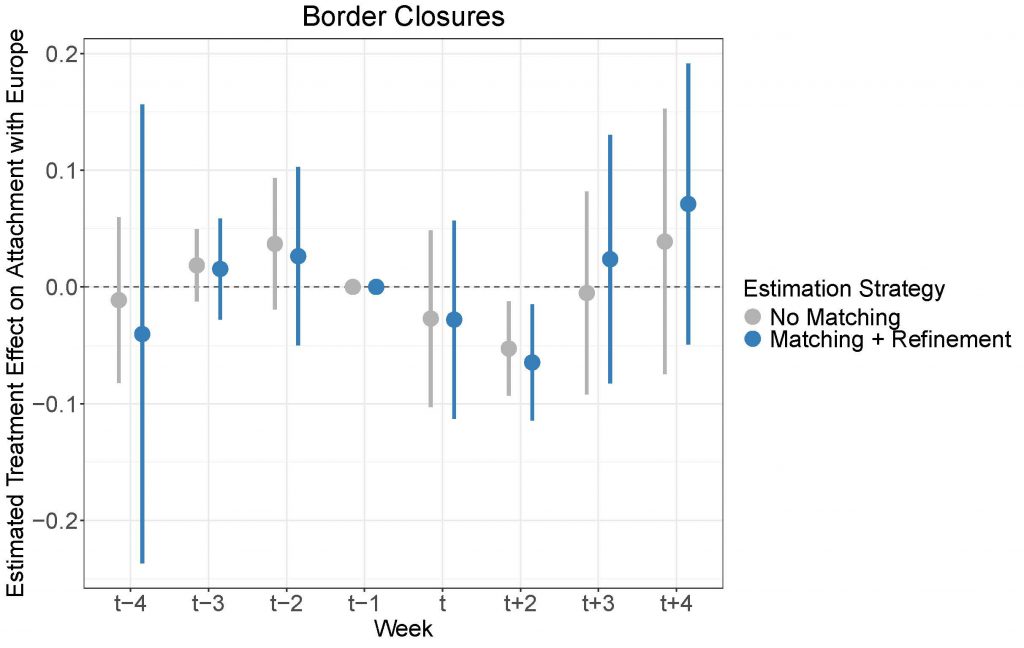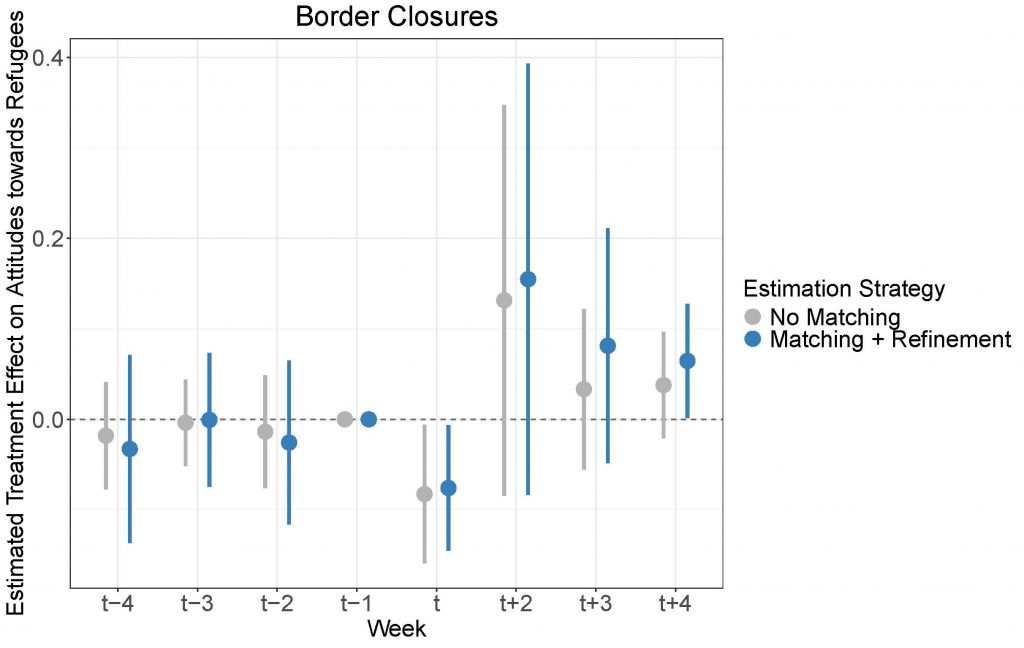Covid-19 border closures were intended to protect public health, but their symbolic effects reached far beyond controlling the virus. Lisa Herbig argues that temporary closures significantly weakened support for European unity, and increased hostility toward immigrants in the short term. Policy-makers should bear in mind that even brief border closures have a significant effect on political attitudes
When Covid-19 hit the European Union in early 2020, Europe’s cherished open border policies vanished overnight. Nations rushed to bring back barriers that European integration had painstakingly dismantled over decades. These closures aimed to protect public health, but did they also influence political attitudes? My recent research with Asli Unan, Theresa Kuhn, Irene Rodriguez, Toni Rodon, Heike Klüver shows that they did, temporarily yet powerfully.
To measure the effect of border closures on political attitudes, we studied the case of Germany, a country at Europe’s crossroads. During the pandemic, some German regions faced strict border closures with neighbouring countries, while others remained open. Comparing these regions allowed us to isolate how border closures alone influenced attitudes, separate from broader pandemic impacts.
We analysed detailed regional data on Covid border closures alongside survey responses from the German Socio-Economic Panel. Using a difference-in-differences (DID) approach, we pinpointed the precise impacts of closing borders. DID is a quasi-experimental approach that estimates causal effects by comparing how outcomes change over time between groups affected and unaffected by a specific intervention or policy.
Our findings show that regions experiencing border closures immediately felt less attached to the European Union. At the same time, hostility towards immigrants rose significantly. We argue that closed borders subtly communicated a message that outsiders represented a (health) threat, amplifying divisions between 'us' and 'them'. These psychological effects also surfaced visibly in daily interactions, public debates, and political discourse.
Regions experiencing border closures during Covid-19 immediately felt less attached to the European Union
However, it is important to note that the effects were short-lived. Within less than a month, the significant effects of both anti-EU feelings and hostility towards migrants disappeared, even while borders remained closed. Thus, border closures briefly disturbed the social fabric but didn’t damage it permanently.


Symbolic actions around borders matter. Our research demonstrates how quickly temporary border closures can spark nationalist attitudes. Such actions send powerful political signals that influence citizens’ perceptions of Europe and their nation more deeply than politicians might realise.
The German government recently introduced border controls to curb illegal migration, yet many experts see such measures as mere symbolic signals of strength and control
In fact, symbolic gestures might matter more than practical policies. The current German government recently introduced border controls to curb illegal migration. Many experts doubt these measures' effectiveness, seeing them instead as mere symbolic signals of strength and control. Symbolism, however, cuts both ways. It can reassure some while alienating others – and this weakens cohesion across Europe.
Europe must handle future crises carefully. Policy-makers need to think deeply about how they communicate border decisions. If temporary closures quickly stir anti-EU sentiment and hostility towards outsiders, what can Europe do differently?
Policy-makers should communicate clearly about the temporary and pragmatic nature of border measures. Avoiding nationalist rhetoric and emphasising European cooperation can limit harmful psychological effects. Europe must ensure crises bring communities together – not push them apart. This seems especially important in current times, when the geopolitical and economic landscape is changing dramatically.
Europe's future relies heavily on maintaining open borders, to sustain trust, solidarity, and cooperation
Ultimately, our study underscores a key lesson: closed borders can quickly close minds, but openness encourages unity. Europe's future relies heavily on maintaining open borders, not just physically but symbolically, to sustain trust, solidarity, and cooperation.
The pandemic taught Europe the fragility of its union. Now, politicians must remember this crucial lesson: truly open borders lead to open minds, and secure Europe’s shared future.